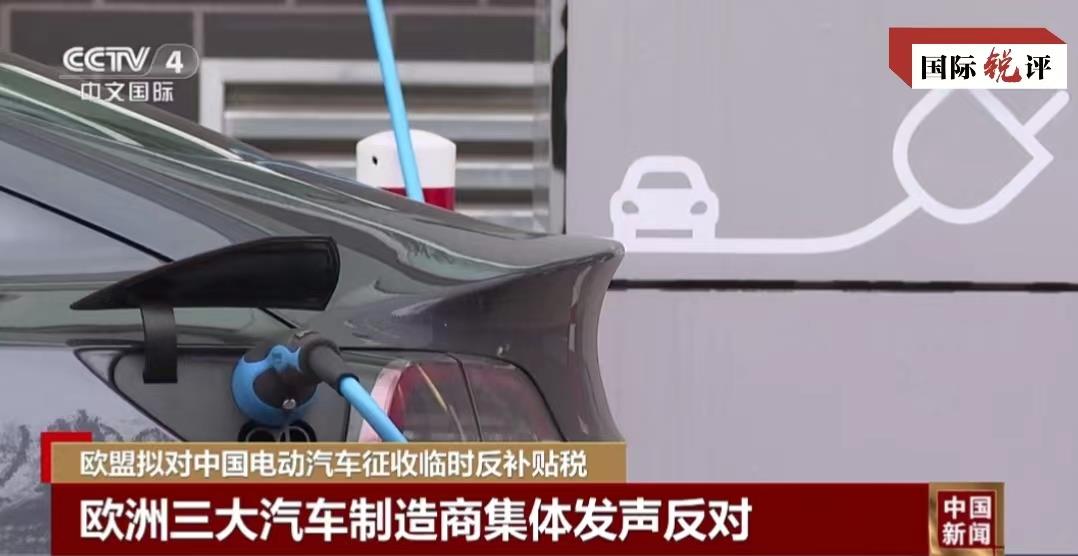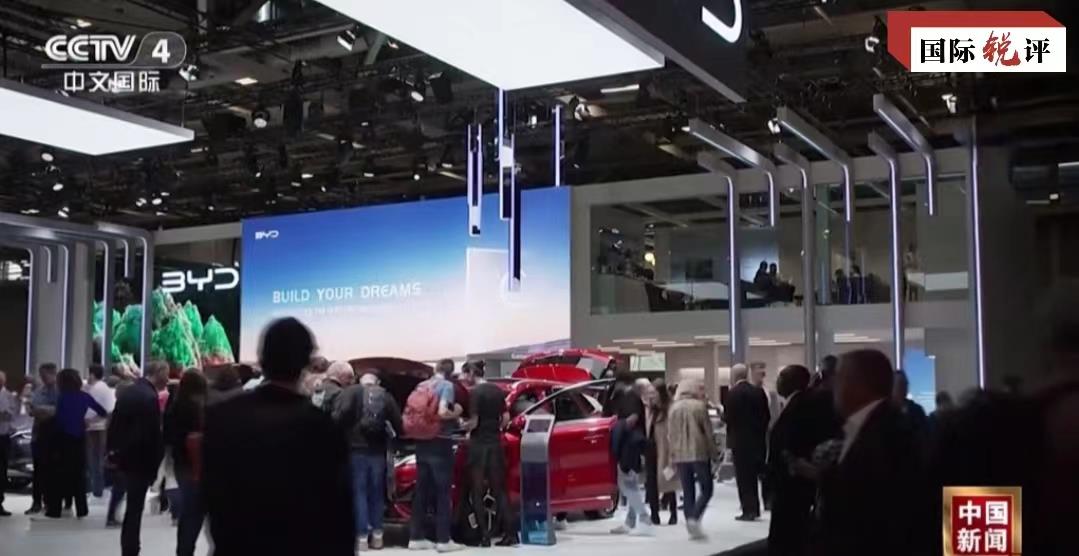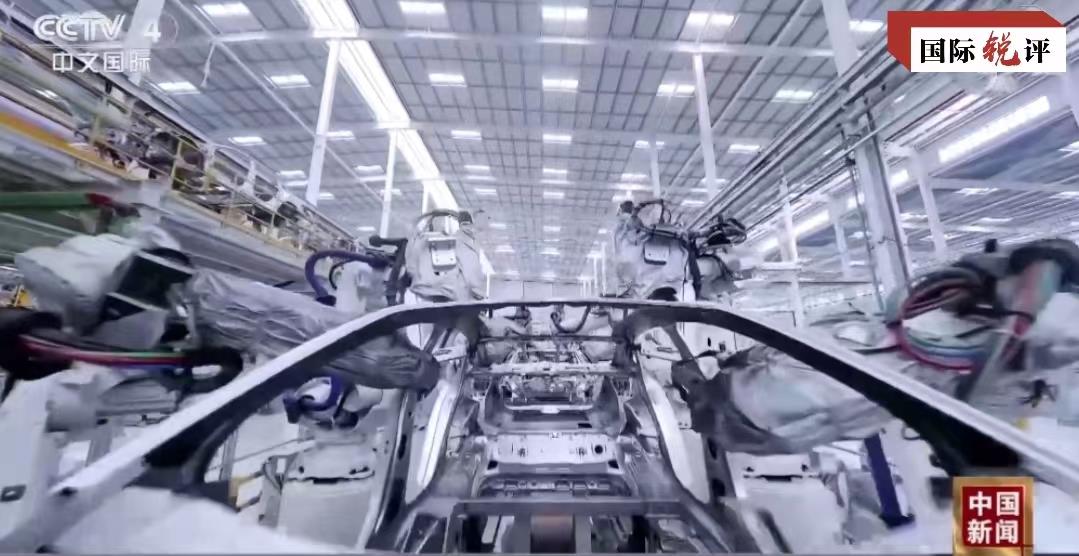Why is it unpopular for the EU to suppress Chinese cars with tariffs?
Author: International Sharp Review Commentator Edited by: Guo Jiayuan Source: CCTV News Client Time: June 14, 2024
"For Europe, especially for the German automobile industry, the EU's decision does more harm than good, and is not conducive to the improvement of the competitiveness of the European automobile industry." On the 13th, in response to the European Commission's announcement that it plans to impose a temporary countervailing tax of up to 38.1% on electric vehicles imported from China, Volkswagen Group of Germany said to the International Review, What Europe needs is to promote the transformation of the automobile industry to electrification, climate neutrality, rather than protectionism.
Not only Volkswagen, Mercedes Benz, BMW and other European car companies expressed their opposition at the first time, believing that the imposition of tariffs would hinder the development of European car companies and harm their own interests. The European Union China Chamber of Commerce also issued a statement, expressing concern that European trade protectionism may lead to the escalation of trade frictions between China and Europe, and impact on China EU trade and commercial relations.

As the object of "protection" by the European Union, the collective opposition of European car companies is enough to show that the EU's decision is not for their sake, but for political manipulation. This practice violates the principles of market economy and international trade rules, and seriously damages the legitimate rights and interests of China EU automobile enterprises and automobile supply chain enterprises.
In fact, since the European Commission decided to launch a countervailing investigation on Chinese electric vehicles in October last year, there have been huge differences within Europe. Germany, Hungary and other countries clearly oppose this, believing that it will "lift a stone and hit his own foot". From the disclosure of the European preliminary determination, there is a lack of factual and legal basis. The "impact" of China's electric vehicles on Europe is not as serious as some people portray it. According to the data from Rongding Consulting Company in the United States, the market share of Chinese electric vehicles in Europe last year was 8%. In 2022, the sales share of European brand electric vehicles in the Chinese market will reach 6%. There is not much difference between the two. In this case, why does the European side insist on using tariffs to suppress China's electric vehicles in spite of opposition? Behind this, there is not only the complicated interest game in Europe, but also the three attitudes of some people in Europe.
First, the mentality of suppressing China's development. In Europe, China EU cooperation is the mainstream voice, but there is also an anti China force. These people do not want to see China's development. They deliberately exaggerate the ideological and political system differences between China and Europe, play up China's "advantage" in China EU cooperation, and try to prevent China and Europe from deepening political mutual trust and expanding practical cooperation. Especially in the context of the rising sentiment of conservatism and populism in Europe, this noise seems to find space. From discouraging Chinese enterprises from investing in Europe to suppressing Chinese electric vehicles with tariffs, it has become the political correctness of some people in Europe to "oppose every China".
Second, fear of fair competition. Europe has long had obvious advantages in the field of traditional fuel vehicles, but with the rapid development of China's new energy vehicle industry, some people in Europe fear that China will achieve "anti super". Some European media have said frankly that "squeezing out" Chinese cars will win more development time for European car manufacturers. Is that really the case?

On the surface, European car companies seem to benefit in the short term. But in the long run, using unfair means to suppress competitors will not only increase the cost of buying cars for European consumers, but also will be difficult to really improve the market competitiveness of European car companies, which will hurt Europe more. Anthony Saixin, senior investment analyst of Jinrui Fund in the United States, pointed out that Chinese automobile manufacturers are highly efficient and remain in the lead. EU tariffs will not have a great impact on them. Chinese cars are still more competitive than European cars.
Third, the mentality of following the trend of the United States. Europe was once a victim of trade protection by the United States. This time, it has become the initiator of trade friction. An important reason behind this is the pressure of the United States. Recently, while hyping the false narrative of the so-called "overcapacity", the United States sharply raised the tariff on China's electric vehicles to 100%. At the same time, the United States also drew together pressure allies to build a "small circle" to contain the development of China's new energy industry.
Last month, when U.S. Treasury Secretary Yellen visited Europe, he called on the United States and Europe to jointly deal with the "overcapacity" problem in China's electric vehicles and other industries. Some analysts said that the European side followed the example of the United States in levying tariffs this time, also to give the United States a confession. But the European side needs to think calmly. Is it worth it to cater to the US suppression of China at the expense of the overall situation of China EU cooperation?
In fact, China and the EU share broad common interests in the new energy vehicle industry. In recent years, BMW, Volkswagen and other European car companies have expanded their new energy vehicle business in China. Ningde Times, BYD, Great Wall and other Chinese enterprises have invested or planned to build factories in Europe. Through benign competition and cooperation, the EU China electric vehicle industry has formed a pattern of "you have me, I have you", which is conducive to improving the competitiveness of European industries, and also conforms to the European vision of pursuing energy transformation and carbon reduction.

Historical experience has repeatedly proved that tariffs cannot bring competitiveness, and there is no winner in the trade war. The advantages of China's electric vehicle industry are forged through full competition, rather than supplemented by industrial subsidies. The European side should carefully listen to the objective and rational voices of all circles, immediately correct wrong practices, stop politicizing economic and trade issues, and properly handle economic and trade frictions through dialogue and consultation. If the European side persists, China will resolutely take necessary measures to safeguard WTO rules and market principles and safeguard the legitimate rights and interests of Chinese enterprises.






